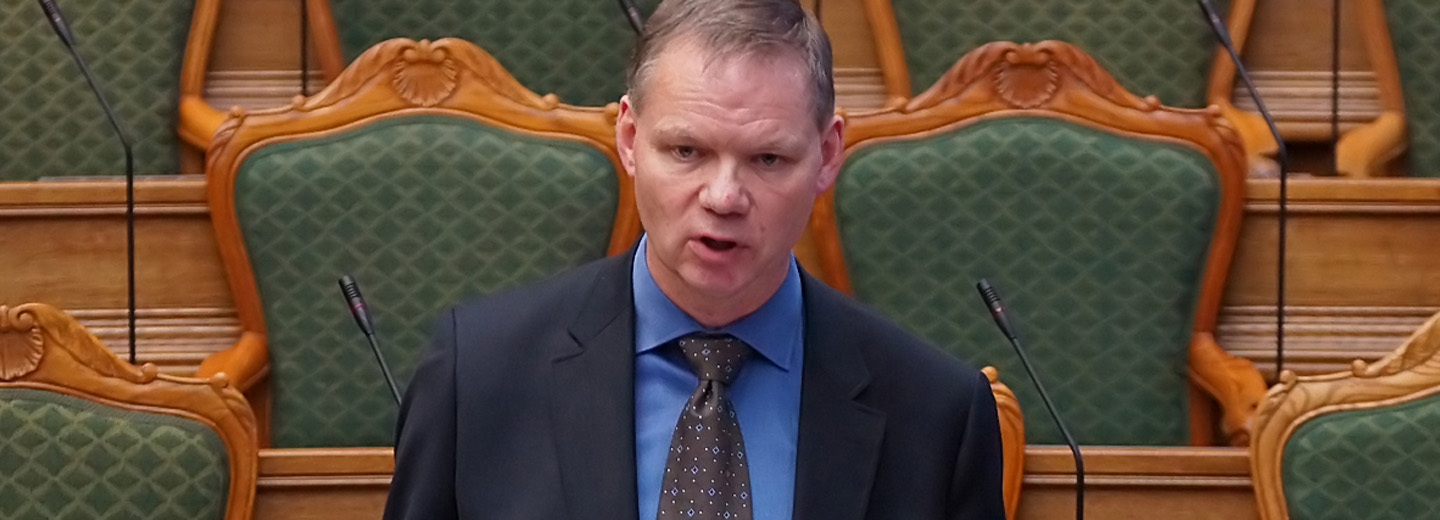
Politician on work experience at NAT
Physicist Mads Toudal Frandsen from the Department of Physics, Chemistry and Pharmacy has had an unusual intern; the politician, Jens Henrik Thulesen Dahl, who represents the Danish People's Party in the Danish Parliament and the Assens City Council.
- It was really interesting, says Mads Toudal Frandsen, who wanted to show his guest the daily life of a scientist and how basic physics research at SDU can contribute to lifting the region of Southern Denmark.
The one-day-long internship was initiated by the Young Academy and has given researchers and politicians the opportunity to get an insight into each other's work lives.
Science Club in Assens
Jens Henrik Thulesen Dahl learned about a number of different initiatives which aim to bring SDU's physics research into society. He was particularly captivated by a project about creating and sustaining an interest in science among school pupils.
The project is called Science Club and is run by the Young Academy. The science clubs are for children and young people from 4th grade up to high school and are centred around a volunteer mentor system in which the children receive instruction from older pupils as well as younger pupils.
The teaching takes place at the pupils' own schools. Currently, Mads Toudal Frandsen is involved in getting a science club with a physics programme for 6th graders up and running.
- It's a super interesting idea for how we can get more young people to engage with science, and it's an idea I would like to bring to Assens Municipality, says Jens Henrik Thulesen Dahl.
Modern computer power
The supercomputer ABACUS 2.0, which resides at SDU, also appeared on the day's programme.
According to Mads Toudal Frandsen, ABACUS 2.0 is an example of how pure research and modern computer power can be harnessed to create simulations of complex processes which could be used by industry - for instance, the simulation of protein folding, which was demonstrated by physicist Ilia Solov'yov from FKF.
Mads Toudal Frandsen is affiliated with the Centre for Cosmology and Particle Physics Phenomenology at SDU, which conducts basic research in cosmology and particle physics. But that is not to say that basic research cannot be applied.
The value of basic research
- In my opinion, basic research has great value in itself, but we are also educating people who now have jobs in major companies in Denmark, such as consultancy companies, the pharmaceutical industry, the finance industry and the energy sector, in companies including Deloitte, Netcompany, Lundbeck, Danske Bank and Mærsk. Our research filters out in different ways into industry and into schools and thus becomes a part of society, says Mads Toudal Frandsen.
According to Jens Henrik Thulesen Dahl, basic research should receive fixed funding from public research funds.
- Basic research is a necessary condition for being able to make basic discoveries, and it should be publicly funded. As a society, we should be able to afford to have a wide palette of basic research centres in action. We know that some ideas will die or will not give direct benefits, but we also know that there will be ideas that can be built further upon. Many patents are created by basic research centres, he says.